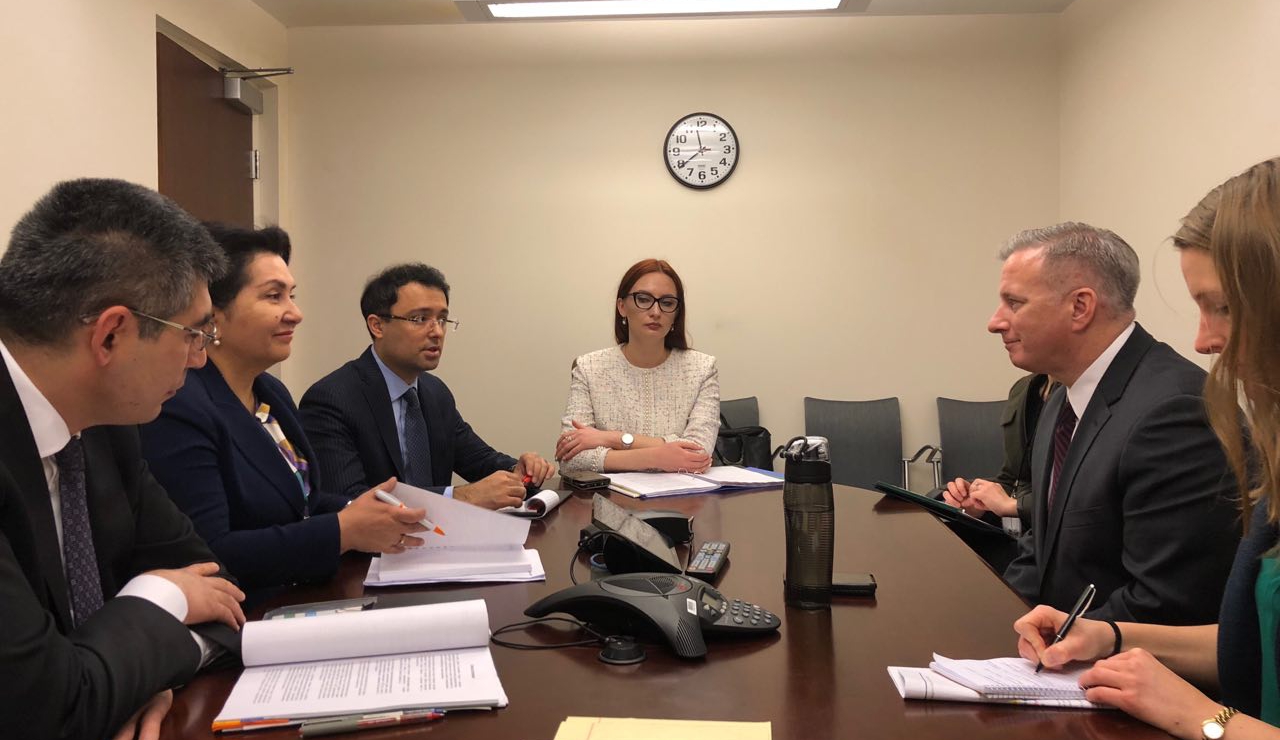
The Government portal of the
Republic of Uzbekistan
Uzbekistan delegation visited Washington
2019-02-11 | Politics
Within the framework of the working visit, the delegation of Uzbekistan led by Deputy Prime Minister Tanzila Narbayeva held negotiations in Washington in the Department of State, the Office of Trade Representative, Department of Labor and the United States Council for International Business (USCIB).

Measures on preventing and suppressing forced labor, taken in Uzbekistan were discussed during the meeting with Deputy Assistant of the U.S. Trade Representative for GSP Erland Herfindahl and Deputy Assistant USTR for South and Central Asian Affairs Zeba Reyazuddin.
Erland Herfindahl informed about the consideration process of issues of applying duty free regime GSP in Uzbekistan, due to, according to him, issues of forced labor. In this context, he noted the timeliness of the visit of Uzbekistan delegation and expressed gratitude for provided information, which in his opinion, will be useful in development of appropriate recommendations for administration of the U.S. President.
Zeba Reyazuddin noted that she had an opportunity to visit Uzbekistan several times and see significant changes achieved over the past two years.
The American side stated “universal recognition of Uzbekistan’s progress in the issue of eliminating forced labor” and welcomed open and constructive negotiations of Uzbekistan delegation with Cotton Campaign, which should have a positive effect in perception of Uzbekistan’s openness among human rights community of the United States.
Deputy Undersecretary for International Affairs at the United States Department of Labor Martha Newton noted tangible progress in eradication of forced labor in Uzbekistan over the past two years.
According to the Ministry of Foreign Affairs of Uzbekistan, issues of cooperation between the United States Department of Labor and the Ministry of Employment and Labor Relations of Uzbekistan were also discussed at the meeting. In particular, aspects of cooperation on implementation of labor standards, joint research of labor market and demographic situation of Uzbekistan, management of databases, as well as prospects of technical and consulting assistance were considered.
Involvement prospects of American experts as permanent advisor of the Ministry of Employment and Labor Relations were also considered.
These cooperation areas are particularly relevant in the context of development of a new Labor Code of Uzbekistan and plans for conducting a population census in 2022.
The delegation also held negotiations with the Ambassador-at-large at the Office to Monitor and Combat Trafficking in Persons John Richmond, who visited Uzbekistan last December.
Representative of the U.S. Department of State welcomed openness of the government of Uzbekistan to discuss sensitive issues and praised measures taken in the country on preventing the use of child and forced labor. The Ambassador emphasized the importance of legal and institutional mechanisms established in Uzbekistan for combating trafficking in persons.
Issues of protecting workers’ rights, as well as, prospects for establishing partnership between business circles of the two countries were discussed at the meeting with representatives of the United States Council for International Business, which brings together more than 300 American transnational corporations, law firms and business associations.
Source: UzA









